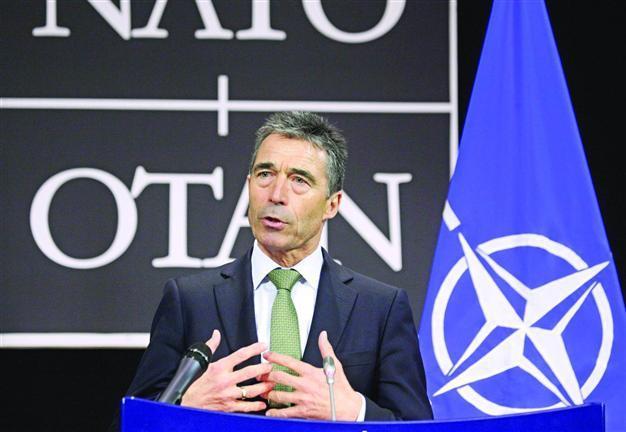Report casts doubts on NATO shield
WASHINGTON

The 1st phase will be declared in Chicago summit, NATO chief says.
A prestigious science group cast more doubt on whether the Obama administration’s Europe-based missile defense shield can protect the United States and recommends scrapping key parts of the system.The conclusions from the National Academy of Sciences in a letter to lawmakers obtained by The Associated Press could complicate the administration’s efforts to get Congress to fund the program.
Though the academy said the plans would effectively protect Europe, some lawmakers are already asking why the U.S., at a time of tight budgets, should spend billions on a system that provides limited homeland defense.
The academy’s letter bolsters two earlier reports by Defense Department advisers and congressional investigators that said the European system faced significant delays, cost overruns and technology problems.
The academy says that proposed system could effectively defend Europe and U.S. troops based there against short and medium range missiles from Iran, if it fields an interceptor that is fast enough. But it dismisses the administration’s claims that the system will eventually offer protection to the United States as well. It says the system is “at best less than optimal for homeland defense.” It recommends eliminating the last phase of the Obama plan, because it says the interceptors planned for that phase will not be fast enough to take down intercontinental missiles launched from Iran. It says that the Bush administration plan would have faced the same problem.
It also recommends abandoning a satellite tracking system now in development that the administration has argued could solve weaknesses in the systems’ radars. A report by the Defense Science Board, an advisory group to the U.S. Defense Department, argued that the radars planned for the shield were too weak to effectively track missiles. The administration has denied that and said that its satellite system would bolster the capabilities.
But in blunt language, the academy rejected that claim, saying that the satellites would be too far away from the threat to provide useful data. It also says the system would cost up to three times the administration’s estimates. According to a congressional aide, who has seen the academy’s study, but who spoke on condition of anonymity because he was not authorized to comment, the academy estimates the satellite system would cost $27.7 billion.
















